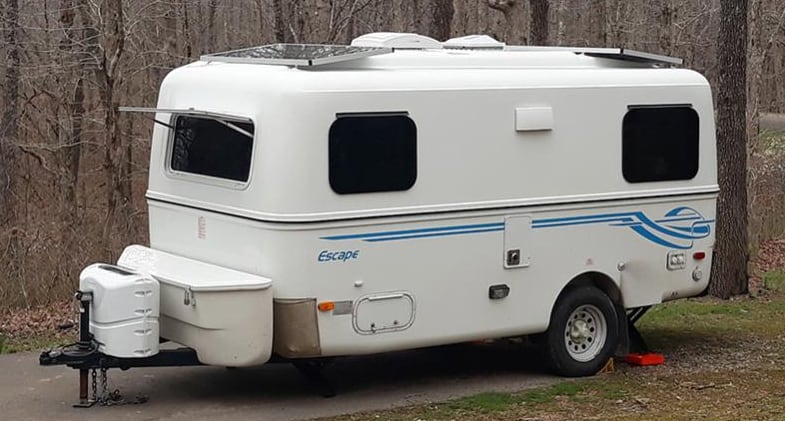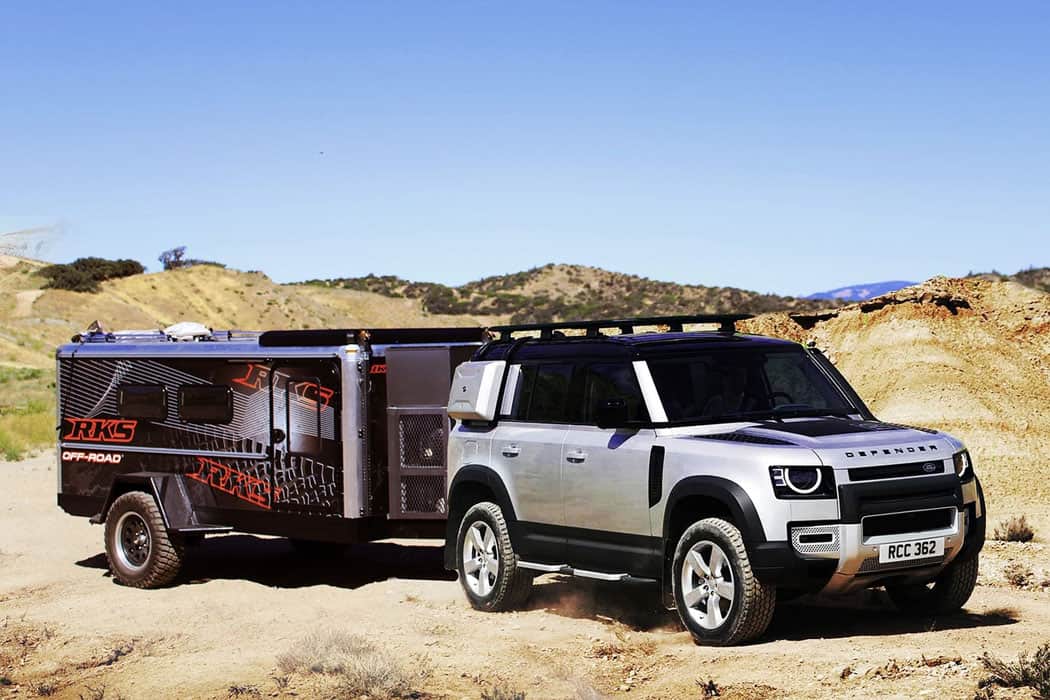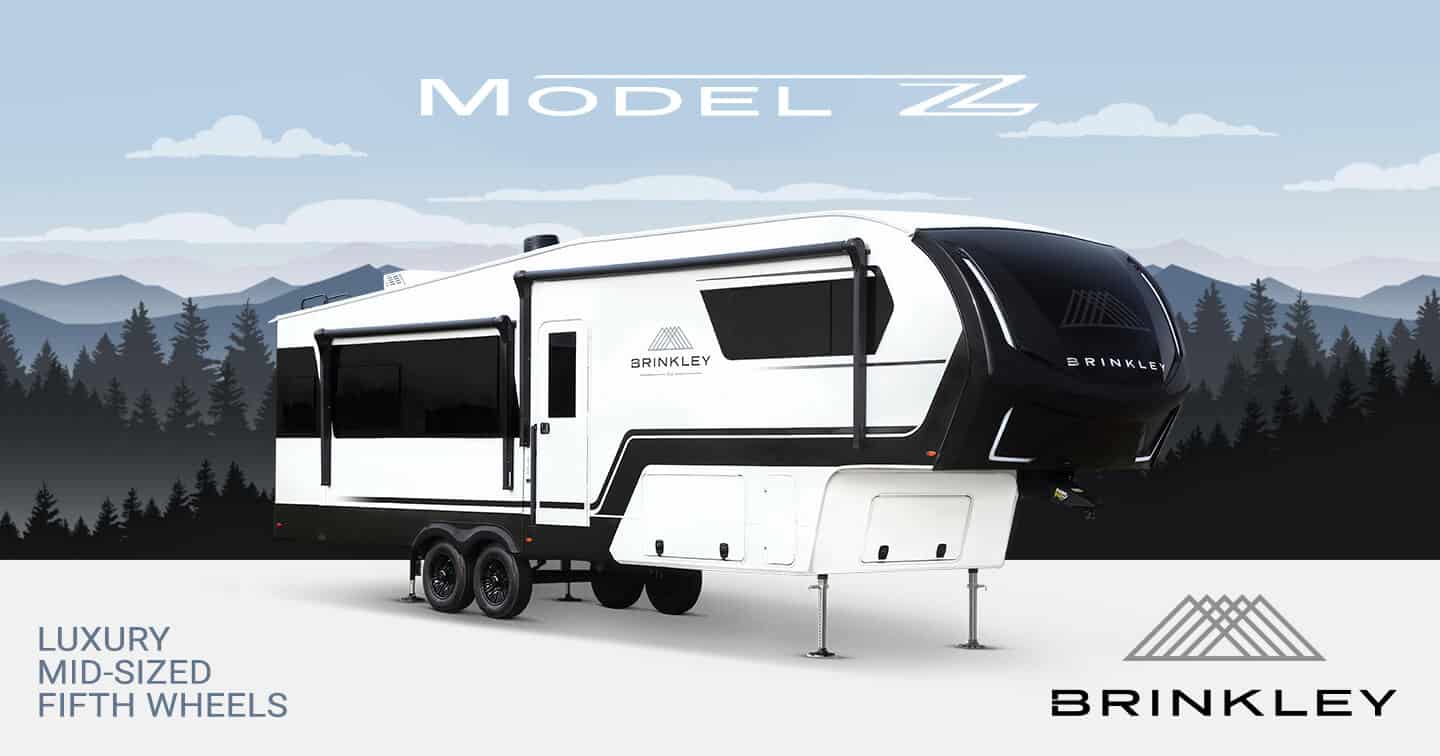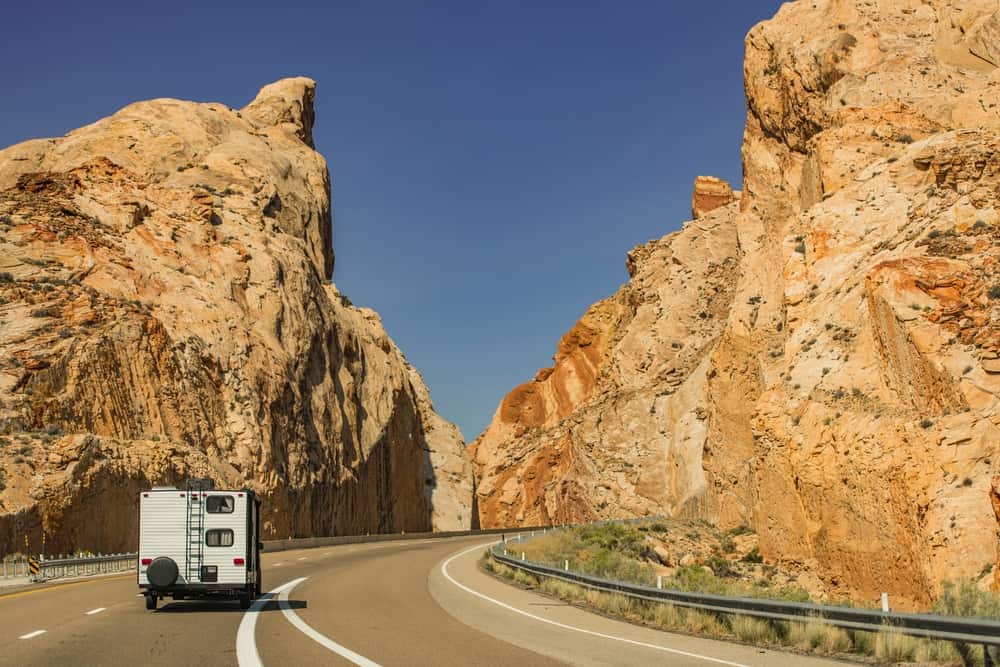
Can Fiberglass RV’s Hold Up to the Cold Weather?
If you plan on traveling or camping during the winter, you need to make sure you have an RV that’s up to the challenge. The materials and build of an RV can affect how resistant it is to temperature changes. Fiberglass RVs are popular choices for many travelers, but are they really suitable for cold weather camping?
As a matter of fact, fiberglass RVs are among the best choices once the temperature drops. These RVs Usually have fiberglass insulation as well as the fiberglass exterior. This material is good at trapping and retaining heat, so you don’t have to spend as much money to keep your camper warm.
There are fiberglass and aluminum RVs on the market and both of these can be good for winter camping. We’ll cover the similarities and differences below, as well as a few great fiberglass models to consider for your upcoming winter trips.
Fiberglass vs Aluminum RVs
There’s a pretty even split between aluminum and fiberglass RVs in the market today. Fiberglass models are typically smooth, while aluminum ones have the characteristic ridges along the sides. Fiberglass models are still somewhat recent additions to the RV world, but they have lots of great benefits.
Fiberglass Pros and Cons
To start off, fiberglass Rvs have better insulation. The exterior material and insulation composition make it easier for these vehicles to retain heat. If you want to reduce volume as well, fiberglass is a great material for noise cancellation. It absorbs heat and sound quite well, which has made it a popular choice. This material is also easier to clean compared to aluminum. Dirt doesn’t stick to it as easily. In addition, fiberglass is more resistant to dents and breakage. Even if holes to appear, it’s fairly easy to fill them in as long as they are small.
Fiberglass is generally lighter than aluminum as well, so having a camper with this type of siding means that it’s lighter and requires less gas. Overall, this is a great material, especially if retaining heat is your main priority. The main drawback is that fiberglass RVs tend to be more expensive than their aluminum counterparts. They are also prone to UV damage, so you’ll have to be extra careful to apply the proper coatings and use covers to protect the exterior.
Aluminum Pros and Cons
Rvs with aluminum siding are also fairly popular. Even though fiberglass may be your better choice for winter camping, there are still lots of benefits to getting an aluminum RV. For starters, they tend to be cheaper than fiberglass! Aluminum is somewhat prone to denting, but it’s fairly easy to repair. You can also just replace damaged sections without performing an extensive repair. This is harder to do for fiberglass RVs, so the maintenance is a benefit.
On the downside, aluminum RVs aren’t as good at regulating temperature. They tend to get quite hot when left under the sun, and will freexe faster than a fiberglass model. They can also be harder to clean and are often less aerodynamic because of their ridged surface. Both aluminum and fiberglass are suitable materials for an RV, but fiberglass is definitely the better pick if you plan on using the vehicle for cold weather camping.
Best Fiberglass RVs for Winter Camping
Escape Travel Trailers
At Escape, you deal directly with the people who hand-craft your fiberglass RV trailer & know it best. You also get the benefit of avoiding a dealer markup on the price, while having the peace of mind of knowing that you’re dealing directly with the manufacturer for any warranty or after sales support. Visit the Escape website, and join an Escape enthusiast and owners forum to learn more.
Northwood Arctic Fox
If you’re looking for a stellar winter camper, Northwood Arctic Fox should be at the top of your list. These have R-18 ceiling and R-15 siding insulation, which is quite a good rating for an RV. The frame is aluminum, which makes it sturdy, but the exterior is fiberglass.
Bigfoot RV
This brand is less well known, but they make great fiberglass RVs that hold up well under cold conditions. The trailers are fairly small, but are designed specifically for winter camping. Each models has thermal pane windows and high density insulation. Truck campers are also available if that’s your preference. Learn more about Bigfoot RV here.
Lance 4 Seasons
More great options for winter campers can be found in the lineup of Lance 4 Seasons campers. These models come with a lot of cold-weather amenities. Some of these include insulated hatch covers, heated holding tanks, and a ducted heating system. They also have fiberglass exteriors to help retain heat. Learn more about Lance campers here.
Heartland Bighorn
Though we don’t always think of them as fiberglass RVs, fifth wheels are also on the table, and the Bighorn from Heartland is a great option. There is a 35,000 BTu furnace, as well as two A/C systems at 15,000 BTU each. The underbelly of this fifth wheel is also heated and enclosed, so you don’t have to worry about your holding tanks freezing! The laminated fiberglass sidewalls keep the heat in as well. For more information, visit the product page here.
Other Ways to Improve Your RV Insulation
Buying a good cold weather fiberglass RV is a great place to start, but there are other things you can do to keep your vehicle warmer in the winter.
Skirting
RV skirtng helps to protect and insulate the base of your RV. The material is supposed to keep the heat inside and protect any tanks, wires, or pipes from freezing. You can use custom skirting that’s tailored to your RV, or make you own with tarps, styrofoam, cardboard, or any other material that provides an extra layer of protection.
Window and Vent Covers
Windows, doors, and vents are major sites for heat leaks. If your RV seems to lose heat quickly, make sure the seals around your windows and doors are unbroken. Double paned windows will make it easier to retain heat. Using fitted covers for your vents and windows will also keep the interior warmer. Even covering entryways with a curtain or blanket can help prevent heat loss.
Rugs
Carpeting and rugs can help the floor of your RV stay warm. If you feel like your feet are always cold and the floor is letting heat out, use a few rugs and consider laying some carpet in your RV. This is a small fix, but it can make a big difference in your comfort level.
Related Articles:
- What Travel Trailer Brands Offer Fiberglass Roofs?
- What Is The Best RV For Winter Living?
- Is Custom RV Skirting Worth The Money?




